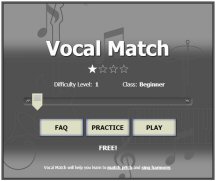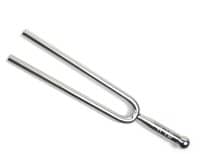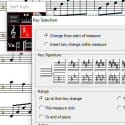
Matching Pitches
Because I’m already tired of talking about new hymnbooks… today’s post is about…
piTcH mATchiNg!
Which sometimes sounds very much like that looks.
If you’ve been singing… playing… listening to… enjoying… music all your life, singing on pitch may be second nature to you. (If you think you’re good at it, well… you might be.)
If you’re a first-time choir member, or you didn’t grow up in a musical household, or your ears just don’t work that way, it can be a bit harder.
 Here’s a game I have enjoyed over the years, that helps you learn to match what you sing with what you hear.
Here’s a game I have enjoyed over the years, that helps you learn to match what you sing with what you hear.
It’s Flash-based, so you’ll need a desktop computer–it won’t work on a mobile/tablet. It requires a microphone and headphones or speakers. (You probably have something that will work. For example, if you have a webcam, you’re good to go.)

I have what is comonly called “perfect pitch.” What that really means is that I recognize tones (if you play me a tone at 440 vibrations per second, I’m going to call it an “A”), I can recall those tones and sing them back to you without a reference note (although I usually recall them a bit flat…**sigh**), and a few other odds and ends of things…. like identifying the pitches of doorbells, vacuum cleaners, car horns… oh, lots of important stuff.
It’s useful in some settings. I could pitch my high school choir at the start of a capppella numbers. Which made me look cool. For a change.
I also managed to heroically stop our ward choir organist during the introduction to a song, hearing that the organ’s transpose dial was raised by a fourth, thereby averting disaster of the shrill and shrieking sort. Which did not make me look cool. It made me look officious and interfering, since I wasn’t directing. The sacrifices we make…
That’s about all I’ve found it useful for. Good relative pitch works as well, without the drawbacks.
Ah… the drawbacks. Taking a freshman college theory test, the instructor handed me a sheet of music, asked me to sight read the melody, and gave me a pitch… a minor third above the one written on the page. As a trembling freshman, it nearly defeated me. I found myself identifying each note, calculating a minor third higher, and singing like a hunt-and-peck typist. This also did not make me look cool.
It amuses me to play that little game linked above, and find that as well as I know pitch, I still have to work to match it exactly. Vibrato makes it worse. All in all, I think it’s good for me.
By the way, as skilled as our most amazing performers are, most commercial vocal recordings you hear are run through pitch correction software anyway. I think that may be one reason recordings sound so perfect and live concerts sometimes leave you wondering. 🙂
Happy matching!

